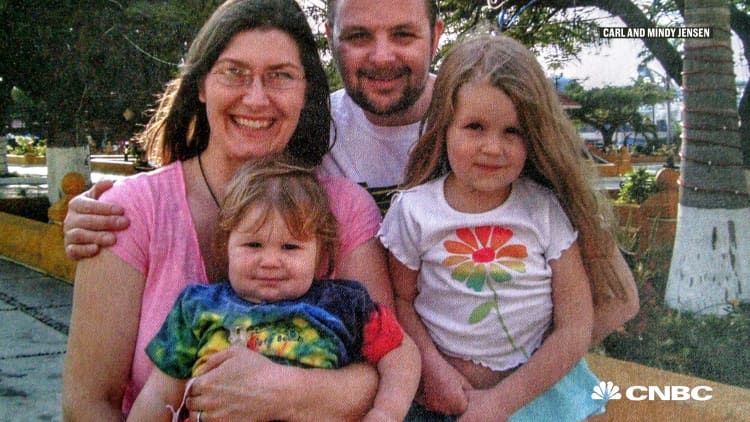The habits of early retirees tend to be profoundly powerful, yet strangely simple. The large majority of early retirees saved a bunch of money, that probably goes without saying. How many of their lifestyle techniques could be picked up and mastered by almost anyone? Probably more of them than you think.
These habits helped early retirees cut the cord that connected them to full-time work while they were still young, or relatively young, by enabling them to control their expenses, save a ton of cash and quit the rat race super early.
Here are five of the simplest and most effective habits that help early retirees.
1. They prioritize their futures over "living the good life" now
Clearly, early retirees save money. How much? Before my wife and I retired at 35, we saved around 70 percent of our income every month. Some save more, some less. But the majority of future early retirees aim to save at least 50 percent of their income.
Whatever the percentage you choose, the key is to save a ton, as much as you can.
However, this doesn't mean you're depriving yourself of the things that you enjoy. For example, many future and current early retirees don't subscribe to cable or satellite television service, which helps minimize costs. But if watching TV genuinely makes you happy, do it. Or going out to eat instead of cooking at home. Or that gym membership you pay good money for.
Prioritizing your future means you're spending money in moderation and taking full advantage of the accumulation phase of your life. While you're making the most money, save the most money. I can guarantee you that your future self will thank you for it.
Not only does this habit help acquire the wealth needed to see early retirees through their much longer retirement horizons, it also helps to establish healthy lifestyle decisions, like living sensibly, understanding"enough" and recognizing what truly makes us happy in life.
2. They understand where their money goes
It's incredibly tough to curb your spending if you don't know where you're spending your money. Magazine subscriptions, morning cups of coffee and impulse items at grocery stores rob many of us of our hard-earned cash, and most of us don't even know it's happening.
Here's the truth: I haven't met very many early retirees who don't have a precise understanding of how much they spend - and on what. This process need not take hours and hours to keep up with, either. Once your initial system of tracking your expenses is set up, maintaining it should be as easy as plugging numbers in, or even easier.
Start by going through your bank and credit card statements. Take the first 20 expenses and consciously try to remember those purchases. What did you buy? And are you still deriving the same value from that purchase today? You might say "Yes" to many of those buys, but I found myself regretting more and more of my purchases as I got more comfortable with this habit.
3. They get out of their comfort zones
The ability to escape our comfort zones helps our ability to retire early because it alters, in a healthy way, our outlook on life. Getting out of your comfort zone is a mind-game and one that helps break an all-too-common addiction to spending.
Getting out of your comfort zone means engaging in uncomfortable conversations and not choosing the status quo when making decisions. It's about looking people in the eye as you walk past them rather than avoiding eye contact. For an introvert, it's about willingly introducing yourself at a dinner party.
Becoming more comfortable in uncomfortable situations helps to ease the mental component of quitting work early in life.

4. They tend to be optimistic
Naturally, if you're calling it quits in your 50s, 40s or even your 30s, you are probably pretty darn optimistic about your future! The thought that your stash will last you decades or more without having to work means you're generally positive about your future and believe that things will work out.
This level of optimism applies to everything in life, not just retirement. Early retirees take a glass-half-full approach to most things, from making life-altering decisions about work to picking the right wine to sip during dinner. They expect things to go well and, as we know from the research surrounding the placebo effect, this phenomenon is very real.
After all, how many early retirees do you know that are mad all the time?
Prioritizing your future means you're spending money in moderation and taking full advantage of the accumulation phase of your life.
A quick note: I am not talking about "blind" optimism. Early retirees don't simply "wish" for things to happen. Instead, they work hard to ensure their futures are happy and long-lasting.
Early retirees know it's wise to plan ahead and account for when things will not go as planned. One must be a realist and understand the realities of the world while letting optimism take us to some truly amazing places in life. It definitely has for my wife and me.
And, lastly:
5. They spend money on experiences, not things
Early retirees know first-hand that things lose value. On the other hand, experiences tend to appreciate. On our death beds, people tend to recall those amazing trips we took, or those monthly date nights with our spouses, more than the car we drove into the office every day.
Today, I would much rather take an inexpensive vacation to somewhere I love than get stuff as gifts. Early-retirees are over "stuff" and often find that, the less stuff they have, the more simple life becomes. Why? Maintenance and storage, baby! Who wants to spend 50 years of blissful retirement with a bunch of crap in the closet to deal with every time the door falls open?
Retiring early isn't tough. It just takes time. And patience. With the right habits in place, early retirement becomes more possible. We prioritize our futures, understand our spending, get out of our comfort zones and appreciate our experiences more than stuff. We also smile a lot.
Smiling is what makes so many of us early retirees tick.
Steve Adcock retired from full-time work at 35 and spends his time writing about escaping the 9-5 and enjoying life to the fullest. He lives with his wife and two dogs in an Airstream RV and travels the country for a living. Steve writes about personal finance and the art of blogging on his website at ThinkSaveRetire.com.
Like this story? Like CNBC Make It on Facebook!
Don't miss: This couple retired in their 30s and are now traveling full time in an Airstream
Video by Beatriz Bajuelos Castillo



